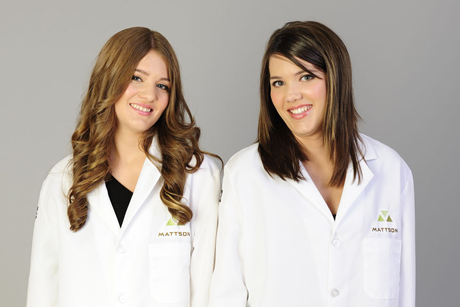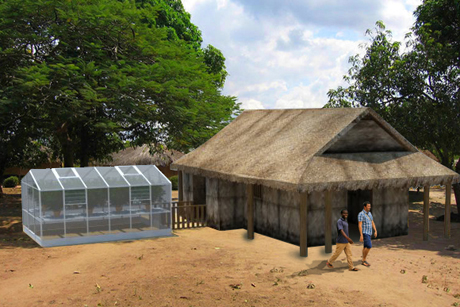Big Idea finalists deliver public pitches April 19
By Kathy Hovis


From a new delivery method for vaccines to an energy bar for “nerdy” college students to a better way to market new mobile apps, finalists in the undergraduate Big Idea competition are prepping their pitches for the April 19 finals.
The finals are part of the two-day Entrepreneurship@Cornell Celebration conference, which brings more than 200 alumni back to campus for networking opportunities, panel discussions, and meetings with students and faculty.
The eight finalists who will pitch their ideas were chosen from a pool of 140 applicants to the competition, which offers a $3,000 prize for first place, $2,000 for the first runner-up and additional prizes for second through fourth runners-up. Prizes are supported by the Vijay (M.Eng. '75) and Sita Vashee Promising Entrepreneur Award Endowment Fund.
Seniors Erica Barnell and Stephanie Ball’s PharmaSEED idea grew from a problem the pair read about on the Gates Foundation website: A lack of refrigeration for vaccines in developing countries makes it difficult to reach vulnerable populations with these lifesaving drugs.
“Although this problem was being addressed through a variety of academic approaches, we discovered a need that was often overlooked – the consumer acceptance of foreign investment,” Barnell said. Ball and Barnell’s idea for PharmaSEED uses locally owned greenhouses to grow genetically modified peanuts that contain the vaccine (using a technology created at Cornell); the peanuts are then ground by an adjacent factory into a paste and distributed to health care providers to give to children. The model boosts local economic development and focuses on relationships between local health care providers and their patients.
Mikayla Diesch ’16, whose company is called Solar Flare, has created an energy bar targeted to busy college students. Diesch has been working on the idea since high school, when she and her sister won a NASA contest to design a nutritious new food for astronauts.
The all-natural, organic granola bar contains DHA omega-3 fatty acids extracted from fish oil for improved brain function and health. Diesch’s idea won the Shark Tank competition sponsored by the Samuel C. Johnson Graduate School Management in February. She has found a producer and hopes to have samples of the bar around for Slope Day and finals week, she said.
Rahul Shah’s ’16 Parrakit idea doesn’t involve manufacturing a product, but it does help other people market theirs.
After creating a smartphone app earlier this year, Shah found it tough to spread the word about the app or get people to start using it. Through its website, Parrakit would allow people starting anything from a restaurant to a software application to give away something related to their product in return for people sharing it on Facebook, Twitter or another social media site.
The final pitches in the Big Idea contest, at 4:30 p.m. Friday, April 19, in the Statler Ballroom, are free and open to the public. The winning ideas will be chosen by a panel of alumni and Cornell judges, as well as votes from the audience.
Kathy Hovis is a writer for Entrepreneurship@Cornell.
Media Contact
Get Cornell news delivered right to your inbox.
Subscribe